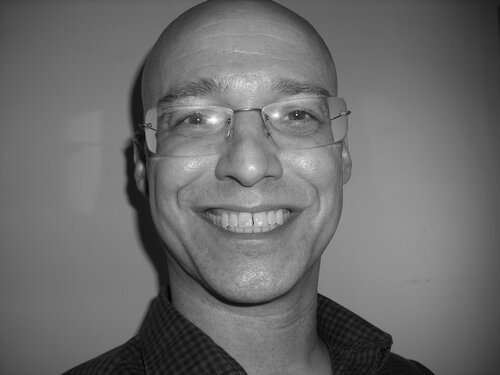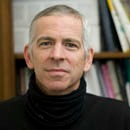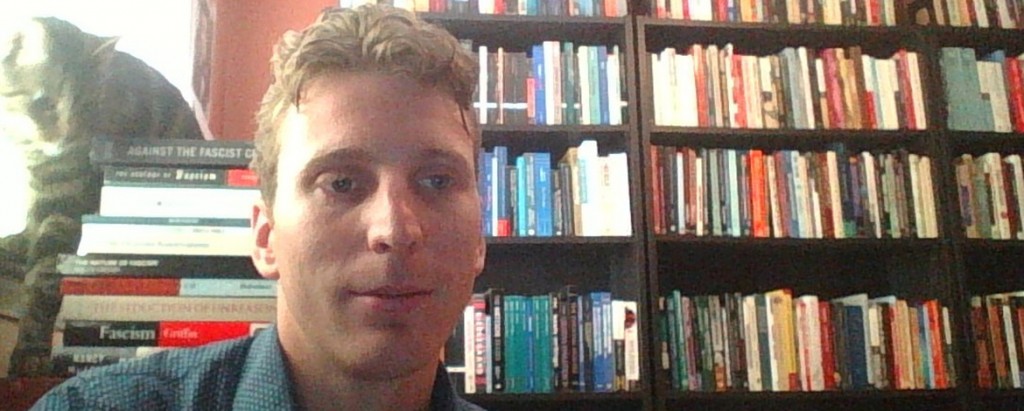Page 1 • (17 results in 0.039 seconds)
-
Philosophy involves inquiry about the most basic and compelling questions of life. German philosopher Immanuel Kant once summed up these questions in this way: “What can I know? What should I do?
Why Study Philosophy?Philosophy involves inquiry about the most basic and compelling questions of life. German philosopher Immanuel Kant once summed up these questions in this way: “What can I know? What should I do? What may I hope?” In doing philosophy, people learn to clarify questions such as these and to evaluate beliefs held about them. They examine the reasons given for personal lifestyles, for public policies from just about everything from war to welfare, from criminal justice to
-

Visiting Assistant Professor of Philosophy | Department of Philosophy | leland@plu.edu | 253-535-7396 | As a teacher of philosophy, I very much enjoy both 1) introducing new students to this exciting discipline and 2) teaching broadly across its many different subfields.
interests beyond these areas. As a scholar, I specialize in 18th and 19th century German philosophy, with a particular focus on the writings of Immanuel Kant (1724-1804) and, more specifically, his “theoretical” philosophy (i.e. his metaphysics, epistemology, and philosophy of mind). Most of my publications are in this area, and I continue to conduct research in it.
-

Interim Director, IHON | International Honors | strumac@plu.edu | 253-535-8774 | Arthur Strum teaches interdisciplinary courses drawing particularly upon philosophy, literature, and political theory.
Immanuel Kant History and Meaning of Jazz Aesthetics American and African-American Culture and Literature German philosophy Critical Theory Theory/History of Public Sphere Alexander Kluge Biography Arthur Strum teaches interdisciplinary courses drawing particularly upon philosophy, literature, and political theory. He began his career in the field of German Studies, teaching and writing for more than a decade on 18th and 19th century German philosophy, the Bildungsroman, The Frankfurt School, Kant
Area of Emphasis/Expertise -
Originally Published in 2016 The German word for the humanities is die Geisteswissenschaften – literally translated, the sciences of the spirit or of the mind. The term, coined by the historian Wilhelm Dilthey in the 19 th century, has its roots in the German philosopher…
(Immanuel Kant, Karl Marx, Hannah Arendt), and religion (Martin Luther, Dietrich Bonhoeffer, Paul Tillich), to name a few. Beginning in our intermediate-level German courses and continuing through our upper-division literature seminars and our cultural history sequence, the German program at PLU incorporates the study of many texts, artworks, treatises, and other cultural products from several humanities fields, enabling students to approach the study of the German-speaking countries from an
-

Philosophy professor Adam Arnold is a new addition to PLU’s faculty. Originally from the Tacoma area, he earned a Bachelor of Arts degree from the University of Washington, Tacoma in 2009. From there, he earned the opportunity to study away at Johann Wolfgang Goethe University…
committee members for his PhD thesis. Dr. Arnold’s specializations include Political and Social Philosophy, with a background in 19th and 20th century German and French Philosophy. He is particularly interested in European Philosophers such as Georg Wilhelm Friedrich Hegel and Immanuel Kant. Dr. Arnold was attracted to the systematic thoughts of Hegel as well as Systematic Philosophy in general. Specifically, he was interested in “how Hegel’s metaphysics relates to the other aspects of his thought, i.e
-
2006 Martin E. Marty 2007 John Pahl 2008 Susan Ross 2009 John Dominic Crossan 2010 Mark Brocker 2011 Marcus J. Borg 2012 Robert N.
and open to the public. Co-sponsored by the President’s Office, Provost Office, Women’s & Gender Studies Program, History Department, Campus Ministry, Lutheran Studies, Languages & Literatures Department, Dean of Inclusive Excellence, Immanuel Presbyterian Church (North Tacoma), and Peace Evangelical Lutheran Church (Tacoma).Previous Knutson Lecture Scholars 2006 Martin E. Marty 2007 John Pahl 2008 Susan Ross 2009 John Dominic Crossan 2010 Mark Brocker 2011 Marcus J. Borg 2012 Robert N
-
1975 - David B. Truman 1976 - Page Smith 1977 - Lewis W. Spitz 1978 - Paul T.K. Lin 1979 - Roderick Nash 1980 - Raul Hilberg 1981 - Margot Liberty 1982 - Warren Cohen 1983 - Gerald Strauss 1984 -
- Christopher R. Browning``Adolf Hitler and the Decisions for the Final Solution: An Old Question and New Documents``1975 - 19971975 – David B. Truman 1976 – Page Smith 1977 – Lewis W. Spitz 1978 – Paul T.K. Lin 1979 – Roderick Nash 1980 – Raul Hilberg 1981 – Margot Liberty 1982 – Warren Cohen 1983 – Gerald Strauss 1984 – George Mosse 1985 – Donald Miller 1986 – Lloyd Eastman 1987 – Stanley Kutler 1988 – Robert Collins 1989 – Glenda Riley 1990 – Robert Nozick 1991 – Immanuel C.Y. Hsu 1992 – Carl N. Degler
-
Free inquiry shapes effective worldly intelligence and service in the world. Martin Luther’s free investigation of scripture led to his breakthrough and the posting of the ninety-five theses on
his successors. This intellectual tradition subsequently absorbed the empirical methods of the new science, and the German universities of the eighteenth and nineteenth centuries submitted all literary, scientific, historical, philosophic and theological knowledge to penetrating scrutiny. Great minds like those of Kant and Hegel exemplified this critical intellectual heritage at its best. Yet this precious legacy of free inquiry was not always fostered or welcomed among Lutherans. Battles over
-
Dr. Edward J. Sullivan is the Helen Gould Shepard Professor of the History of Art at New York University's Institute of Fine Arts, where he also serves as Deputy Director of the Institute. Dr.
) Michael R. Marrus (1994) Walter Nugent (1993) Carl N. Degler (1992) Immanuel C.Y. Hsu (1991) Robert Nozick (1990) Glenda Riley (1989)Robert Collins (1988) Stanley Kutler (1987) Lloyd Eastman (1986) Donald Miller (1985) George Mosse (1984) Gerald Strauss (1983) Warren Cohen (1982) Margot Liberty (1981) Raul Hilberg (1980) Roderick Nash (1979) Paul T.K. Lin (1978) Lewis W. Spitz (1977) Page Smith (1976) David B. Truman (1975) Walter C. Schnackenberg Endowment About Walter C. SchnackenbergWalter C
-

“The massacre of innocents in Orlando prompts us to pray for those who grieve, to resist homophobia and Islamophobia, and to work diligently for an end to the easy purchase of deadly weapons. A Lutheran university, inspired by the non-violent life and inclusive love of…
Vigils for Orlando The Rainbow Center is hosting a gathering for Community Processing and Healing from 5-7 p.m. on Wednesday, June 15. Counselors from HopeSparks will be leading a therapy session on grief, trauma, and loss. This is a chance for community check in and to connect with professionals to process emotions. Address: 2215 Pacific Ave., Tacoma. Immanuel Presbyterian Church will host a Pulse Vigil: A Spiritual Place for Grief, Love, and Action at 7 p.m. on Wednesday, June 15. Address: 901
Do you have any feedback for us? If so, feel free to use our Feedback Form.


